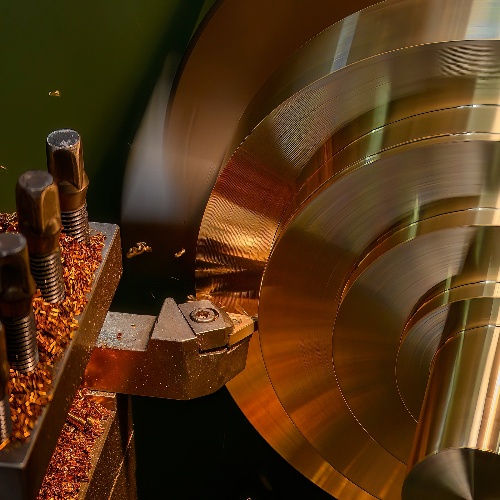Introduction
Brass, a versatile copper-zinc alloy, has long been celebrated for its durability, malleability, and corrosion resistance. These properties make brass an essential material in various industries, where it is used in everything from plumbing to musical instruments. But what exactly makes brass such a popular choice across different fields? Let’s dive into the primary uses of brass in modern industry and see why this material continues to stand out.

What are the Main Uses of Brass in Modern Industry?
1. Plumbing and Pipe Fittings
One of the most prominent applications of brass is in plumbing and pipe fittings. Brass fittings are highly valued because they:
Resist corrosion: This is especially important in water systems, where materials are constantly exposed to moisture.
Have a long lifespan: Brass does not degrade quickly, ensuring pipes and fittings last for years.
Are lead-free: Many brass alloys are lead-free, making them safe for potable water systems.
Case Study: A major plumbing company recently switched to brass fittings for their residential projects due to customer concerns about safety and longevity. After five years, they reported a 40% decrease in maintenance issues related to corrosion and leaks, demonstrating brass’s reliability.
2. Electrical Components
Brass’s excellent conductivity makes it ideal for electrical components and terminals. Unlike some other metals, brass also offers:
Good tensile strength: This reduces the risk of breakage or wear under stress.
High conductivity with resistance to oxidation: This ensures consistent electrical performance over time.
Brass is often used in connectors, switches, and even the pins in power plugs, where its ability to conduct electricity without corroding is essential.
3. Musical Instruments
Brass is essential in the production of many musical instruments, including trumpets, trombones, and French horns. Musicians and manufacturers alike prefer brass for its:
Acoustic properties: Brass produces a rich, resonant sound that is ideal for wind instruments.
Workability: Brass is easy to shape into complex designs, a necessity for creating specific sound qualities.
Aesthetic appeal: The warm golden color of brass adds visual appeal, making instruments both functional and beautiful.
Fun Fact: Did you know that “brass bands” get their name from the primary material of the instruments? Brass’s distinct sound and durability make it the top choice for ensembles worldwide.
4. Marine Applications
Brass also finds use in marine environments, where materials are frequently exposed to salt water and corrosive elements. Brass’s resistance to corrosion makes it well-suited for:
Boat fittings and fasteners
Propeller shafts
Marine hardware like valves and pumps
The alloy’s durability in harsh conditions ensures that these components last longer, even with constant exposure to salt water.
5. Automotive and Industrial Machinery
In automotive and machinery applications, brass is commonly used in radiators, air conditioning systems, and hydraulic components. This is due to its:
Excellent thermal conductivity: Brass can withstand high temperatures, making it ideal for cooling systems.
Ease of machining: Brass components are easy to shape and cut, helping manufacturers achieve precise fits.
In hydraulic systems, brass is frequently chosen for its wear resistance and ability to handle high-pressure environments, such as in fuel injectors and gear systems.
6. Jewelry and Decorative Items
Brass’s attractive color and affordability make it a popular choice in the fashion and jewelry industries. Unlike gold, brass is relatively low-cost but can be polished to achieve a similar look. It’s commonly found in:
Fashion jewelry
Decorative home items
Sculptures and art installations
In addition, brass’s hypoallergenic properties make it a good choice for individuals with skin sensitivities, allowing them to wear brass jewelry without irritation.
Conclusion
Brass remains an incredibly versatile and durable material, with applications across industries as diverse as plumbing, electronics, marine environments, automotive systems, and jewelry. Its resistance to corrosion, malleability, and appealing appearance make it a top choice for countless applications in modern industry.
Whether you’re considering brass for plumbing, marine hardware, or simply as a decorative material, it offers both reliability and style that few metals can match. If you have any questions about how brass might benefit your next project, or if you’d like more information on specific brass grades, contact us today for expert guidance tailored to your needs. Let’s find the right brass solution to enhance your industry project.